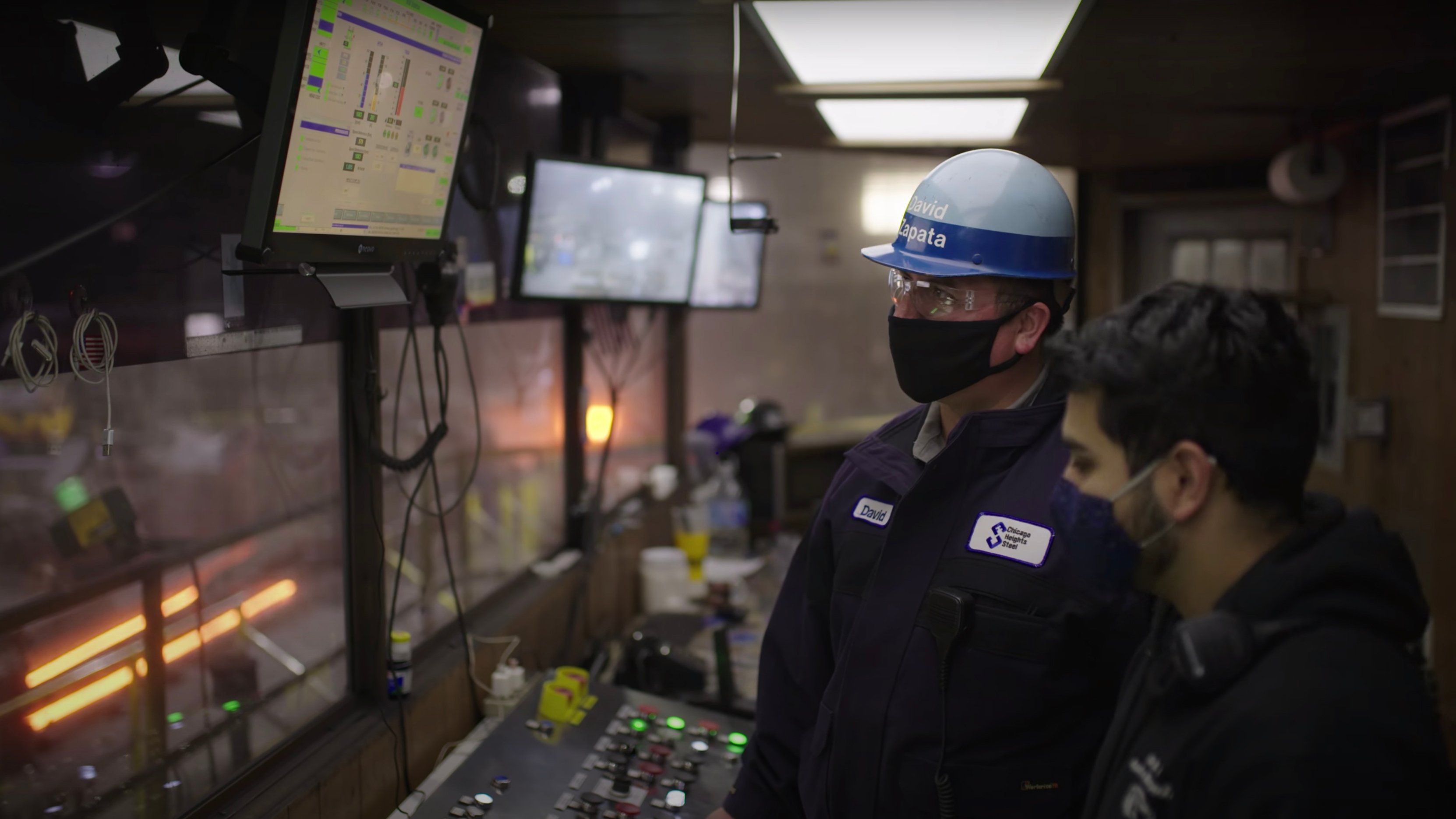Chicago Heights Steel is a rail re-roller that has been in business since 1893 and operates out of Chicago, Illinois in the United States. The company buys old railroad rail, heats it up, and splits it into three sections. From those pieces, they run different products: signposts, T posts and some specialty products.
Obsolete Control & Electrical System Causes Downtime
An obsolete control and electrical system was causing downtime and preventing Chicago Heights Steel from producing at capacity.
“Every time they were having an electrical problem, they were spending a lot of time finding out why things were happening. And even more time to get things solved,” says Antonio Ambra, Business Development Manager at AIC.
“No one alive could fix some of that stuff. There were no parts available. No one knew anything about it,” says Bradley Corral, President of Chicago Heights Steel. The mindset at Chicago Heights Steel is to do whatever it takes to get a job done, so it was important to find a partner who operated the same way.
Planning a System Upgrade Required Expertise
Chicago Heights Steel enlisted help from AIC, a Rockwell Automation System Integrator Partner.
Automazioni Industriali Capitanio (AIC) is a global system integrator based in Italy that provides tailored automation and robotic solutions for the steel industry. They have more than 1,000 applications worldwide and over 40 years of experience helping steel customers.
AIC came up with a plan for revamping the entire rolling mill, starting with the head rougher stands where the steel is reduced in size, and going through the takeout of the bar on the cooling beds in the finishing area. The system included:
- New main and auxiliary drives
- Automation & control desks
- HMI control system based on Stratus Server and ThinManager® Thin Client Management Software
- Safety system
- Sensors
- Engineering
- Spare parts
- Remote support services
- Packing and shipping
“The new system has the ability to bring every single PC onto the network, so we can see in real-time what’s going on in the mill,” says Antonio. “And it’s scalable: the system has potentially no limits for future expansion.”

